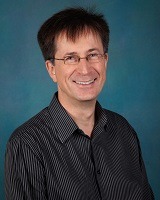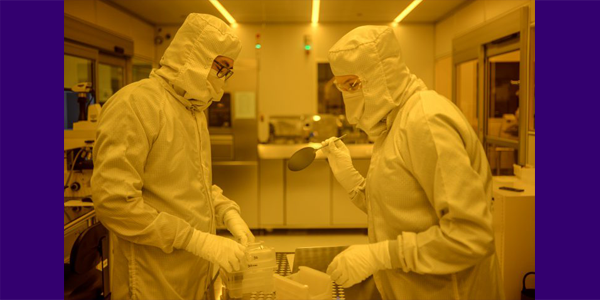Adapted from an article by Institute for Nano-engineered Systems (NanoES) staff
Ayokunle Olanrewaju, assistant professor of mechanical engineering and of bioengineering, has received one of four seed grants from UW’s Institute for Nano-engineered Systems (NanoES).

Karl Böhringer, NanoES director
The grants, made to researchers at the University of Washington (UW) and Western Washington University, support the use of nanotechnology tools to develop new, innovative technologies and devices. Awardees will receive up to $10,000 to carry out work in the UW’s Washington Nanofabrication Facility (WNF) and Molecular Analysis Facility (MAF), key nanotechnology facilities in the Northwest Nanotechnology Infrastructure, which is one of 16 sites in the NSF’s National Nanotechnology Coordinated Infrastructure (NNCI) program.
“We were thrilled with the range of novel proposals that we received from researchers across the Pacific Northwest,” said NanoES director Karl Böhringer, who is a joint professor of electrical & computer engineering and bioengineering at the University of Washington. “We look forward to seeing the outcome of these projects and their impact.”
This seed grant program enables first-time facility users both inside and outside the UW to build and characterize prototypes, obtain preliminary results and conduct proof of concept studies.
Autonomous microfluidic devices for therapeutic monitoring of human immunodeficiency virus (HIV) medications

Ayokunle Olanrewaju
Ayokunle Olanrewaju, Assistant Professor in Mechanical Engineering and Bioengineering, University of Washington
Abstract: 38 million people live with human immunodeficiency virus (HIV) around the world and 25 million of them take daily antiretroviral (ARV) drugs to extend their length and quality of life. However, >25% of patients are at risk of treatment failure and death because of inadequate medication adherence and inter-individual differences in drug pharmacokinetics. ARVs are typically monitored using liquid chromatography tandem mass spectrometry (LC-MS/MS), but this is centralized, expensive, and unavailable at the point of need (e.g. doctor’s office, patient’s home, or event setting). A rapid and user-friendly test for measuring ARVs would actionable information to prevent treatment failure and improve HIV care outcomes.
We recently developed the enzymatic REverSe TRanscrIptase Chain Termination (RESTRICT) assay for measuring ARVs in the nucleotide reverse transcriptase inhibitor (NRTI) class used in >90% of HIV treatment regimens. RESTRICT is rapid (<30 min) and accurate compared with LC-MS/MS but still requires 4 liquid handling steps and timed user intervention. We propose the development of an autonomous microfluidic device – with self-propelled and self-regulated encoded by microchannel surface geometry and chemistry – to automate the RESTRICT. Our RESTRICT chip will enable rapid and user-friendly therapeutic monitoring of ARVs at the point of need including in low-resource settings.
We will leverage previous work by our group on the design and fabrication of capillary microfluidic devices for autonomous liquid handling using capillary trigger valves, retention burst valves, and capillary pumps. We will design new capillary microfluidic networks for enzyme activity assays to monitor DNA synthesis in the presence of NRTIs. To our knowledge this will be the first application of capillary microfluidics to enzyme activity assays and therapeutic drug monitoring. Success will require advances in the design, fabrication, and application of capillary microfluidic networks.
The other new seed grant awardees are:
Fabrication of Doped Silicon Ion Traps
Sara Mouradian, Assistant Professor of Electrical & Computer Engineering, University of Washington
Out-of-oven, energy efficient, rapid fabrication of high entropy oxides using RF fields
Aniruddh Vashisth, Assistant Professor of Mechanical Engineering, University of Washington
Anisotropic nanomaterial heterostructures for photocatalysis
Michael Enright, Assistant Professor of Chemistry, Western Washington University
Information about future seed grant opportunities through the Northwest Nanotechnology Infrastructure can be found on the NanoES website.


